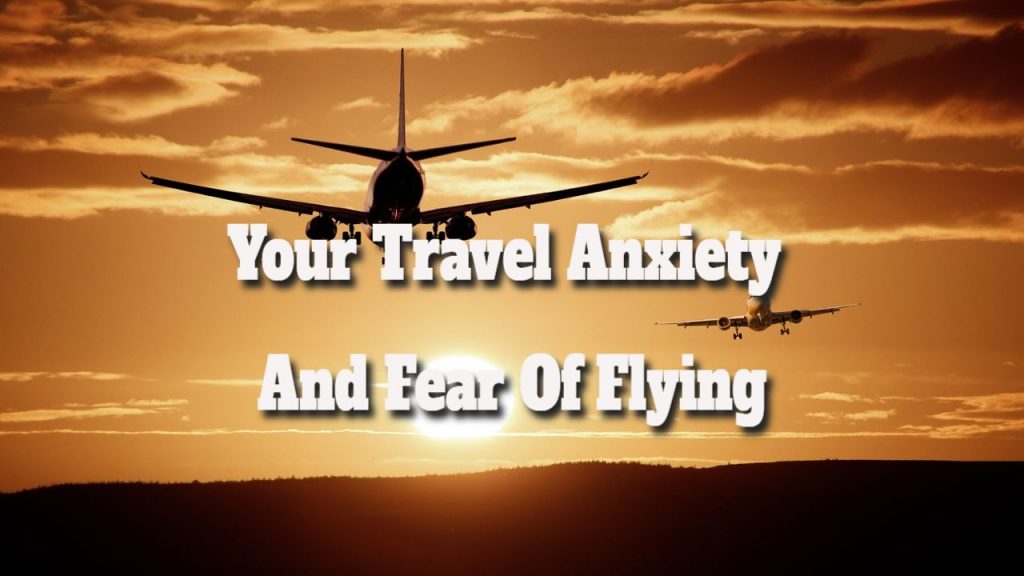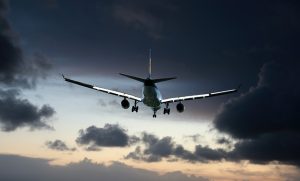Your Travel Anxiety And Fear Of Flying
Have you ever wondered why some people have travel anxiety and dislike flying?
It is a unique phenomenon that causes many people to fear and avoid air travel entirely. However, there is far more to it than meets the eye.
The causes are complicated, and knowing them is the first step towards conquering your anxieties and having a stress-free journey. So, what causes these concerns, and how may they be alleviated?
Understanding Travel Stress and Anxiety.
Knowing the causes and triggers is essential for finding relief and enjoying your vacation if you have travel anxiety or a fear of flying.
Tight timetables, a dread of the unknown, and safety worries are all potential sources of travel stress. Meeting deadlines, navigating unfamiliar territory, and adjusting to a new job can all lead to stress.
Furthermore, fear of flying can be caused by various circumstances, including a fear of heights, turbulence, or loss of control. Understanding the underlying reasons for your stress and anxiety will help you develop effective coping strategies and ways.
Recognise the causes of fear of flying.
Understanding the reasons of fear of flying is critical for effectively treating and defeating this common travel phobia. This fear could be the outcome of several factors.
One probable explanation is a loss of control. When you fly, you trust the pilot and crew with your life. This loss of control can be highly upsetting for some people.
Another possible factor is a fear of heights or enclosed areas. Being in an aircraft thousands of metres above the ground can cause anxiety and claustrophobia.
Furthermore, previous unfavourable experiences, such as turbulence or a problematic landing, may exacerbate the fear of flying.
Identifying these causes may assist you in developing strategies for dealing with and overcoming your fear.
Overcome travel anxiety and fear of flying.
Manage your emotions and plan a nice trip to combat travel stress and anxiety.
Begin organising and controlling all aspects of your trip. Please list things to do and pack, and set aside enough time to fulfil them.
To reduce anxiety, learn about your trip and become familiar with local customs and transportation alternatives.
If you are anxious before, during, or after a trip, consider relaxation techniques like deep breathing or meditation.
Drinking enough water and eating nutritious meals will help you balance your body and mind.
Finally, have a cheerful attitude and enjoy the trip ahead of you.
Techniques to overcome your fear of flying.
With these practical tips, you may conquer your fear of flying and enjoy air travel.
Deep breathing exercises are an adequate remedy. If you’re nervous about flying, take deep, steady breaths through your nose and out your mouth. This relaxes your nervous system and alleviates anxiousness.
Visualisation is also an effective strategy. Close your eyes and envision yourself in a peaceful, tranquil environment like the beach or the mountains. Concentrate on this area’s sights, sounds, and fragrances to relieve your anxiety.
You might also try to distract yourself with hobbies like reading, listening to music, or watching a movie. These hobbies can help you forget about the flight and divert yourself from your worries.
Develop confidence for stress-free travel.
Positive self-talk and visualisation exercises can develop a sense of calm and tranquillity, giving you the confidence to travel stress-free.
Before you travel, become conscious of your fears and concerns. Then, replace negative thoughts with positive affirmations like “I am capable and prepared for this journey.”
Imagine yourself successfully managing the various travel scenarios. Consider feeling relaxed and in control during your flight or rail journey.
Deep breathing techniques may help you feel more relaxed.
Learn about your location, including local customs and transportation alternatives, to increase your confidence and preparedness.
What are the most prevalent physical signs of travel anxiety and fear of flying?
Common physical symptoms of travel stress and anxiety
Symptoms may include rapid heartbeat, shortness of breath, sweating, muscle tension, and stomach ache.
Coping strategies and relaxation techniques can help with these symptoms.
Do any specific variables contribute to certain people’s dread of flying?
Some people are scared of flying for specific reasons. These factors may be
– Previous traumatic events.
Fear of heights, loss of control, and plane crashes.
How long does it often take to overcome travel tension and anxiety?
Overcoming travel tension and anxiety typically requires time and effort.
Could you provide any instances of how to overcome a phobia of flying?
There are several strategies for getting over a fear of flying.
Breathing exercises, distraction techniques such as listening to music, and getting professional help are all effective ways to overcome anxiety and make travel more enjoyable.
Are there any exercises or tactics for increasing confidence on a stress-free journey?
There are specific exercises and tactics for boosting confidence and ensuring a stress-free journey.
To ensure a stress-free journey, you must first recognise and manage your travel anxiety and fear of flying.
Understanding the source of your anxiety and employing coping strategies, such as deep breathing exercises or distraction tactics, can help you overcome it and gain confidence.
Remember that, with the correct mindset and tactics, you can overcome your anxiety and start on a lovely, worry-free adventure.
The Article Your Travel Anxiety And Fear Of Flying Appeared First On Survival Avenue.
The post Your Travel Anxiety And Fear Of Flying appeared first on Survivalbite.
The Article Your Travel Anxiety And Fear Of Flying was found on https://limitsofstrategy.com
The Article Your Travel Anxiety And Fear Of Flying First Appeared ON
: https://ad4sc.com


Comments are closed